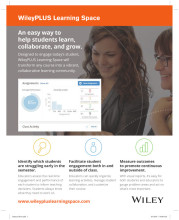Summary: Research Methods For Business A Skill Building Approach | 9781119165552 | Uma Sekaran, et al
- This + 400k other summaries
- A unique study and practice tool
- Never study anything twice again
- Get the grades you hope for
- 100% sure, 100% understanding
Read the summary and the most important questions on Research Methods For Business A Skill Building Approach | 9781119165552 | Uma Sekaran; Roger J. Bougie
-
1 Introduction to research
This is a preview. There are 21 more flashcards available for chapter 1
Show more cards here -
Steps of business research
1. Know where the problem areas exist in the organization, and to identify as clearly and specifically as possible the problems that need to be studied and resolved.
2. Gather information
3. Analyze the data
4. Develop an explanation for the problem
5. Solve the problem by taking the necessary corrective measures -
Basic/Fundamental/Pure research
To generate a body of knowledge by trying to comprehend how certain problems that occur in an organization can be solved. Research done chiefly to make a contribution to existing knowledge. -
Being knowledgeable about research and research methods help professional managers to?
1. Identify and effectively solve minor problems in the work setting.
2. Know how to discriminate good from bad research.
3. Appreciate and be constantly aware of the multiple influences and multiple effects of factors impinging on a situation.
4. Take calculated risks in decision making, knowing full well the probabilities associated with the different possible outcomes.
5. Prevent possible vested interests from exercising their influence in a situation.
6. Relate to hired researchers and consultants moer effectively.
7. Combine experience with scientific knowledge while making decisions. -
While hiring researchers or consultants, the manager should make sure that?
1. The roles and expectations of both parties are made explicit.
2. Relevant philosophies and value systems of the organization are clearly stated and constraints, if any, are communicated.
3. A good rapport is established with the researchers, and between the researchers and employees in the organization, enabling the full cooperation of the latter. -
Disadvantages of external consultants/researchers?
1. Cost of hiring an external research team is usually high and is the main deterrent, unless the problems are critical.
2. In addition to the considerable time the external team takes to understand the organization being researched, they seldom a warm welcome, nor are readily accepted by employees. Soliciting employees' help and enlisting their cooperation in the study is a little more difficult and time-consuming for external researchers than for internal teams.
3. The external team also charges additional fees for their assistance in the implementation and evaluation phases. -
When should you choose for external consultants/researchers?
1. Complex problem
2. Vested interests
3. Existence of the organization is at stake -
When should you choose for internal consultants/researchers?
1. Fairly simple problem
2. Time is for the essence in solving moderately complex problems
3. System-wide need to establish procedures and policies of a fairly routine nature. -
Ethics for research teams
A code of conduct or expected societal norms of behavior while conducting research. -
2 The scientific approach and alternative approaches to investigation
This is a preview. There are 47 more flashcards available for chapter 2
Show more cards here -
Hallmarks or main distinguishing characteristics of scientific research may be listed as follows.
1. Purposiveness
2. Rigor
3. Testability
4. Replicability
5. Precision and confidence
6. Objectivity
7. Generalizability
8. Parsimony -
Research could lake rigor due to 3 reasons:
- The conclusions are incorrectly drawn
- Framing questions caused bias or incorrectness in responses
- Influences have been missed due to small sample
- Higher grades + faster learning
- Never study anything twice
- 100% sure, 100% understanding

































